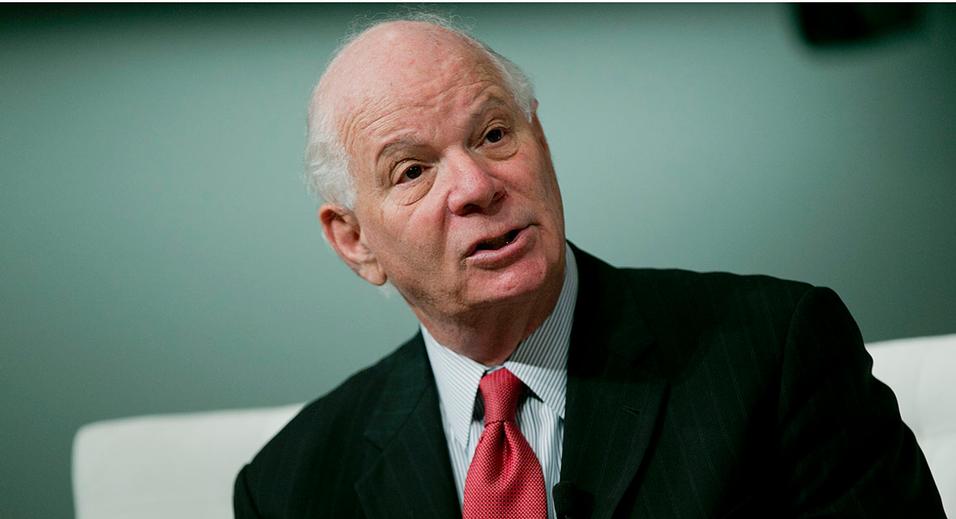AIPAC-backed amendments add to trade bill turmoil
May 12 2015 / 3:56 pm
Critics say provision discouraging boycotts of Israel could legitimize West Bank settlements.
Politico – The trade legislation being debated on Capitol Hill is already highly contentious. Amendments added about Israel are raising the rancor even more.The trade bill amendments aim to discourage foreign governments — in particular European ones — from boycotting, divesting from or putting sanctions on commercial activity linked to Israel and “Israeli-controlled territories.” They were inspired by the “BDS movement,” which was started a decade ago by Palestinian activists to put economic pressure on Israel to change its dealings with the Palestinians.Opponents have a range of concerns with the amendments, which sailed through House and Senate committees. Some support the BDS movement, arguing it is a peaceful, grass-roots campaign that should not be targeted by U.S. trade law. Others, including some who oppose the BDS movement, are more worried about the legislation’s use of the phrase “Israeli-controlled territories.” They argue it’s a veiled reference to Israeli settlements in the West Bank — and that its use is an attempt to use U.S. law to legitimize Israel’s control over disputed land that Palestinians claim for a future state.
Several of the opponents express concern that the American Israel Public Affairs Committee backs the provisions, which would appear to shift the pro-Israel group’s position on the settlements. AIPAC has in the past avoided taking a formal position on the settlements, whose existence and expansion the U.S. government has generally opposed.
“In our view, these are not anti-BDS measures,” said Dylan Williams, vice president of government affairs for the left-leaning pro-Israel group J Street. “These are pro-settlement measures.”
[The Senate will be voting on this today, May 12, 2015]
Williams pointed out that many European countries actively promote trade with the state of Israel itself, suggesting that “the very target of these provisions are the European measures narrowly aimed at illegal settlement activity in the West Bank.”
Jewish Voice for Peace federal policy organizer Rabbi Joseph Berman also blasted the settlement-related implications and added that the amendments “are harmful to prospects for peace as well as principles of free speech.”
Members of the various activist groups have been contacting lawmakers and officials in the Obama administration to stop the provisions. They said that it appears some lawmakers are unaware of the implications of the language and may be reluctant to challenge a measure cast as pro-Israel.
The Senate version has been spearheaded by Sens. Ben Cardin (D-Md.) and Rob Portman (R-Ohio). A similar House version is sponsored by Reps. Peter Roskam (R-Ill.) and Juan Vargas (D-Calif.).
Cardin, who praised the amendment’s success in committee last month, said in an emailed statement to POLITICO: “This amendment intends to counter efforts aimed at de-legitimizing the state of Israel. Issues, including borders and settlements, need to be resolved in direct negotiations between the Israelis and Palestinians.”
Michael Shapiro, an aide to Roskam, called the concern about the amendments “empty criticism by fringe organizations attempting to derail overwhelmingly bipartisan efforts to curb the BDS movement against Israel.” In particular he blasted Jewish Voice for Peace as an anti-Israel group, and said that “discriminatory boycotts against Israeli companies or U.S. companies that do business in Israel are illegitimate and immoral.”
Spokesmen for the other lawmakers involved with the bills in the House and Senate either could not immediately be reached or or did not have immediate comment.
Even without the Israeli-related elements, the multifaceted trade bills, which would in part give greater authority to the president, are already causing deep fissures in Congress. They are being debated as the U.S. negotiates major trade deals with European and Asian countries.
President Barack Obama insists the trade legislation will help boost the U.S. economy, but he faces resistance from many of his fellow Democrats, while finding support from many Republicans who normally loathe him.
Alistair Baskey, a spokesman for the White House’s National Security Council, didn’t not take a position on the amendments but said that “the administration’s policies opposing boycotts directed against the state of Israel and opposing Israeli settlement activity remain unchanged.” Other administration spokesmen did not immediately respond to requests for comment.
Critics saved much of their fury for AIPAC.
Lara Friedman, director of policy and government relations for Americans for Peace Now, said AIPAC’s descriptions of what the provisions really mean are “utterly disingenuous and dishonest” and that by supporting the amendments the group is crossing a line by trying to protect the settlements. She supplied POLITICO with a screenshot of an earlier version of AIPAC’s online statement on the legislation, in which the group referred to Israel or “her territories.”
An AIPAC source, who would not comment on the record, insisted the amendments have nothing to do with settlements. In the latest version of the statement on its site, AIPAC writes that, while many Arab states have long avoided doing business with Israelis, the primary threat is now coming from Europe, “where some governments are initiating efforts to boycott Israel, divest from Israel and threaten sanctions on companies that operate there.” Requests for AIPAC comment on the screenshot were not immediately answered.
Obama has in recent days urged Democrats to get on board with the overall trade package. But Senate Minority Leader Harry Reid has suggested he will block the GOP majority’s plans to press forward with the bills. And Senate Majority Leader Mitch McConnell is expected to set up a vote Tuesday that would officially open debate whether to give the president the greater trade authority he seeks.
Reid’s maneuvering could buy activists more time to get support from lawmakers to change the language.
“For us this is a matter of education (and) … making clear what a shift this would be for U.S. policy,” Friedman said. “If you actually believe that U.S. policy should be to support a two-state solution, this is inconsistent with that.”
#
Partial list of the organizations in the Israel lobby.

